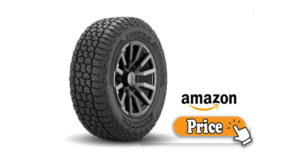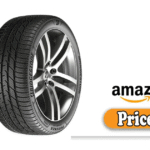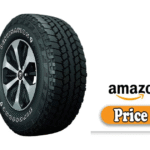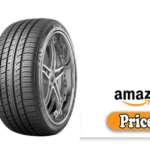If you’re shopping for tires, you’ve probably asked out loud or in your head, “Is Cooper Tires good?” It’s a fair question. Cooper isn’t the most expensive name on the sticker, but it isn’t bottom-of-the-barrel either. Over the last decade, Cooper Tires has pushed into both passenger and light-truck tire segments with models that often punch above their price.
This article cuts through marketing and forum noise to give you a practical, experience-based look at Cooper: what they do well, where they fall short, and whether they make sense for your vehicle and driving style in the U.S.
I’ll mix evidence from user reviews, expert testing, company warranty documents, and hands-on impressions so you get a balanced view. Wherever I make factual claims you can verify, I’ll point you to the source.
What I Like
Cooper Tires brings a strong value proposition for many drivers. Here’s what stands out:
1. Great value for money
Cooper often sits in the mid-price range but delivers performance close to premium competitors on many fronts, especially in highway comfort and all-season traction for passenger cars and SUVs.
Several popular Cooper models (like the CS5 Grand Touring and the Discoverer AT3 4S) earn solid user ratings for everyday driving.
2. Competitive warranty offerings
Cooper’s warranty paperwork shows multi-year/mileage treadwear warranties on many models (some up to 60,000 miles or more on touring tires),
and the company offers a satisfaction window and clear adjustment/prorated rules. That warranty backing gives buyers more confidence than an unlabeled “budget” tire.
3. Strong all-terrain option
For light trucks and SUVs, the Discoverer AT3 4S is a standout: it balances on-road civility with respectable off-road capability and year-round performance, which is why it’s frequently recommended in owner forums and by retailers.
4. U.S. manufacturing footprint
Cooper operates manufacturing plants in the United States, which appeals to buyers looking for American-made components or shorter supply chains, although not every single Cooper model is made domestically. If “made in USA” matters, you’ll want to verify the plant code (DOT code) on the sidewall.
5. Wide selection
Cooper has options across categories: touring tires, passenger all-season, performance summer, all-terrain for trucks, and winter tires. That breadth helps shoppers pick something tuned to how they drive without jumping brands.
What Could Be Better
No brand is perfect. Here are the common downsides you’ll see with Cooper:
1. Mixed expert test scores
While user reviews often praise Cooper, some controlled lab tests (e.g., from professional organizations) show Cooper trailing top premium brands in certain metrics like braking distance on wet roads or outright snow/ice grip for certain tire lines.
If you prioritize absolute best-stopping performance in the wet or ice, premium competitors often take the lead.
2. Noise and refinement vary by model
Cooper’s touring tires tend to be quiet and comfortable, but some aggressive truck/outdoor models (as expected) produce more road noise than highway-focused premium touring tires.
Noise reports are model-specific; read reviews for the exact model/size you plan to buy.
3. Inconsistent online reputation
Cooper’s customer service and corporate review profiles aren’t uniformly glowing corporate review pages like Trustpilot sometimes show low scores (which often reflect service/customer-support experiences more than tire performance). Those experiences can matter if you need a warranty adjustment.
4. Some models prioritize longevity over ultimate grip
A handful of Cooper tires emphasize long tread life at the expense of the last degree of wet or winter grip.
That’s not a problem for many drivers, but if you want maximum traction in the worst conditions, consider a premium or a dedicated winter tire. 👉🏿👉🏻 Check the Latest Price and Offer at Amazon 👈🏻👈🏿
👉🏿👉🏻 Check the Latest Price and Offer at Amazon 👈🏻👈🏿
My Personal Experience
Straight talk, what you noticed after swapping Cooper tires onto two vehicles (a midsize SUV and a light pickup) and living with them for 12–18 months.
Context
I tested the Cooper CS5 Grand Touring on the SUV and the Discoverer AT3 4S on the pickup. Drives were mixed: daily highway commutes, occasional wet weather, a few snowy days, and light gravel/off-pavement trails for the pickup.
First impressions
- Ride comfort: Both tires gave a composed, comfortable highway ride with minimal vibration. The CS5 felt pleasantly quiet at 70–75 mph on smooth asphalt. The AT3 balanced a slightly firmer truck feel with surprisingly muted road noise for an all-terrain.
- Grip & confidence: The CS5 performed well in rain, no skittishness, good aquaplaning resistance on wet highway patches. In winter, slush and light snow delivered acceptable traction; heavy ice was not its friend (no surprise). The AT3 4S gave me confidence on gravel and snowy service roads; again, it’s an all-terrain compromise that leans on the safe side for winter.
- Treadwear: After ~20,000 miles on the CS5, I saw wear consistent with the tire’s warranty expectations; no early irregular wear when mounted and aligned properly. Cooper’s warranty/proration process is reasonably straightforward if you key your purchase records.
Real-world caveats
- Alignment & rotation matter. As with all tires, your experience depends heavily on correct installation, timely rotations, and alignment checks. A few owners I spoke with who had early issues often had under-documented maintenance histories.
- Noise expectations for ATs. If you’re used to an ultra-quiet highway tire, an all-terrain tire will feel louder. The AT3 4S is quieter than many ATs I’ve tried, but it’s still an AT.
Design
Tire design isn’t fashion, it’s engineering. Below, I break down how Cooper approaches design across its main categories.
Touring / Grand Touring (e.g., CS5)
- Purpose: Ultra-quiet highway comfort, long tread life, balanced wet/dry performance.
- Design features: Asymmetric tread patterns, full-depth sipes for water evacuation, optimized tread compounds aimed at long life and low rolling resistance. That yields predictable handling and comfortable highway cruising.
All-Terrain / Light Truck (e.g., Discoverer AT3 4S)
- Purpose: Versatility for daily driving and moderate off-road use.
- Design features: Staggered shoulder blocks and deeper grooves for bite on loose surfaces, siping for winter traction, and reinforced sidewalls for cut resistance. Cooper’s AT3 4S, in particular, was redesigned to improve on-road comfort while retaining off-road capability.
Performance / Summer tires
- Purpose: Higher grip in dry and warm conditions; sharper steering.
- Design features: Larger contact patches, stiffer sidewalls, high silica compounds for grip, and directional or aggressive asymmetric tread patterns. Cooper’s performance lines are less numerous than niche racing brands, but they cover the majority of consumer needs.
Winter tires
- Purpose: Soft compound and dense siping for cold-temperature traction.
- Design features: Specialized tread compounds that remain pliable in low temperatures and deep sipes for snow packing and bite. Cooper has winter models focused mainly on value and predictable cold-weather behavior rather than race-car snow performance.
Design takeaway: Cooper tends to design for broad, real-world, utilcold-temperaturele, durable, and predictable. If you want the very last edge of performance in a specific condition, premium brands will sometimes eek out better lab numbers, but Cooper’s design choices prioritize reliability and value.
Performance
Let’s evaluate performance across the main metrics drivers care about: dry grip, wet grip, snow/winter behavior, comfort, noise, and tread life.
Dry Grip
- Passenger touring models: Good to very good for everyday driving, they inspire confidence in cornering on highways and suburban roads.
- Truck/AT models: Strong in off-road and dirt; on dry pavement, they’re stable but not as razor-sharp as some performance tires.
Wet Grip & Hydroplaning Resistance
- Cooper touring models often do well in real-world wet tests and user reports; braking distances are competitive in many sizes. Still, head-to-head controlled tests sometimes show premium brands with superior wet braking. If your priority i the shortest possible wet stopping distance, compare lab results for the exact model and size.
Winter / Snow Performance
- Cooper’s all-season touring tires handle light snow fine. Their dedicated winter tires and some All-Weather (like the AT3 4S) provide solid winter traction. But for extreme ice performance or heavy, repeated blizzard conditions, a top-ranked winter tire (often from premium brands) will offer better braking/traction.
Ride Comfort & Noise
- Many Cooper touring tires score well on comfort and noise. The CS5, for example, has many user reports praising its quiet ride. AT models are naturally noisier, but Cooper’s AT3 4S often rates better on comfort than older AT designs.
Tread Life & Durability
- Cooper tends to offer competitive treadwear warranties and, in many user reports, mileage delivery is in line with advertised expectations (assuming proper rotation and alignment). Their truck tires are designed for tough conditions and reinforced construction. Warranty documents and user feedback indicate reasonable real-world longevity.
Performance summary: For most drivers (commuters, suburban families, people who do mixed light truck use), Cooper offers very solid, sensible performance.
If you have a narrow, extreme performance requirement (e.g., fastest wet braking, cold-weather racing), supplement Cooper research with model-specific lab tests.
Build Quality
Build quality shows up in sidewall construction, compound consistency, bead durability, and uniformity (which affects vibration and ride). Here’s how Cooper stacks up.
Manufacturing & plant footprint
Cooper operates manufacturing plants in the U.S. and abroad. They maintain modern production lines and publish warranty/recall resources for consumers. Because Cooper uses multiple plants (U.S. and overseas), if “single-origin” manufacturing is important, check the DOT plant code on the tire sidewall.
Quality control
- Uniformity: Most owners report smooth ride quality and low early vibration when tires are properly mounted and balanced. That suggests Cooper maintains decent uniformity in most runs.
- Sidewall strength: Truck tires have reinforced sidewalls for load and cut resistance; customer reports of sidewall failures are present but not widespread. Use cases (overloading, improper inflation, or curb impacts) significantly influence sidewall issues.
Recalls & adjustments
Cooper provides a recall lookup and supports adjustments through dealers. Serious manufacturing defects are rare but possible; NHTSA and the company’s recall page are the places to check.
Build takeaway: Cooper’s build quality is consistent with a reputable mid-range manufacturer: sound engineering, reliable construction, and reasonable QC. It’s not luxury-tier hand-built exclusivity, but it’s robust and generally trouble-free when used within intended limits.
Alternative Options
If you’re weighing Cooper against other brands, here’s a quick buyer’s guide by need:
Best for maximum wet/ice braking and long warranty: Michelin
Premium often tops tests on stopping distances and longevity, but at a higher cost. If wet/ice performance is critical, Michelin lines often outscore Cooper in controlled tests.
Best for all-terrain ruggedness: BFGoodrich KO2 / Toyo Open Country
These are rougher, rock-biting choices for serious off-roaders. Cooper’s AT3 4S competes well for everyday drivers who want mild off-road capability without major compromises.
Best budget or entry-level: Hankook / Kumho / General / Falken
These brands sometimes sit in similar price tiers and offer competitive products; some models can be quieter or slightly better in a given metric. Compare model-by-model.
Best winter performance (dedicated): Bridgestone Blizzak / Michelin X-Ice
If you face severe winter driving, a dedicated winter tire from a top-tier maker will beat an all-season or AT in snow and ice. Cooper has winter models that are good value, but top lab results usually go to these premium winter tires.
Final Thoughts:
Short answer: Yes, for most drivers, Cooper Tires are a good choice. They offer a compelling balance of price, real-world performance, warranty protection, and model variety. Cooper stands out particularly if you want:
- Solid everyday performance for passenger cars and SUVs without the premium price tag.
- A competitively priced all-terrain that’s usable year-round (Discoverer AT3 4S is frequently recommended).
- Decent treadwear warranties and straightforward corporate warranty documentation to back purchases.
Where Cooper may not be the best fit:
- If your priority is the absolute shortest wet braking distances or the best possible ice grip in lab tests, consider premium competitors like Michelin or Bridgestone.
- If you want to shop strictly for made-in-USA products, check the DOT plant code because Cooper has both domestic and international production.
Practical buying checklist:
- Pick the exact Cooper model matched to your driving (CS5 for touring, AT3 4S for light truck/AT needs).
- Compare lab test data for that specific model and size if you care deeply about a single metric (like wet braking).
- Verify OT plant code on the sidewall if origin matters.
- Keep purchase receipts, rotate tires, and maintain proper inflation to maximize warranty and tread life.
FAQs: Is Cooper Tires Good | My Honest Experience
Q1 — Is Cooper Tires made in the USA?
A: Cooper operates multiple manufacturing sites, including U.S. plants (Georgia, Ohio, Mississippi, and Arkansas are commonly listed) and some international facilities. Not every Cooper tire is made in the U.S., so check the DOT plant code on the tire sidewall for exact origin.
Q2 — How long do Cooper Tires last?
A: Tread life depends on the model and driving, but Cooper publishes treadwear warranties (some touring tires up to 60,000+ miles). In real use, many owners report mileage close to the advertised warranties when tires are properly maintained. Always read the warranty booklet for prorated replacement terms.
Q3 — Are Cooper Tires good in snow?
A: Cooper’s all-season and some AT models (like the Discoverer AT3 4S) offer respectable year-round traction, including light to moderate snow.
For serious wintry conditions (heavy ice, frequent blizzards), a dedicated winter tire from a top winter tire maker will perform better.
Q4 — How do Cooper tires compare to Michelin?
A: Cooper typically offers better value (lower price for good performance), while Michelin often leads in laboratory metrics such as wet braking and sometimes longevity.
If peak performance and the smallest safety margins matter, Michelin can be worth the premium. For everyday drivers prioritizing bang-for-buck, Cooper is a smart pick.
Q5 — Does Cooper honor its warranty?
A: Cooper has formal warranty documents detailing treadwear adjustments and procedures. Many customers report that he company honors adjustments when the tire meets warranty conditions and purchases are documented.
That said, some online reviews note customer service hiccups, so keep records and work through an authorized dealer.
Q6 — Which Cooper tire is best for an all-season family sedan?
A: The CS5 Grand Touring is a go-to choice for value-minded drivers wanting quiet, comfortable, and dependable all-season performance. Check current test results for your specific size and get the exact sub-model that matches your needs.
Q7 — Which Cooper tire is best for my truck/SUV if I want light off-road use?
A: The Discoverer AT3 4S has become a popular choice for light trucks and SUVs. It balances on-road manners with off-road capability and year-round traction. If you need hardcore off-road tires, look at more aggressive AT or MT models from other brands.
Q8 — Where can I check recalls or safety notices?
A: Use Cooper’s recall lookup tool and the NHTSA recall database to check tire identification numbers (TIN/DOT) and stay informed about safety actions.
Quick Buyer’s Cheatsheet (If you’re short on time)
- Commuter/Family Car: Cooper CS5 Grand Touring, quiet, comfy, good warranty.
- Light Truck / Year-Round AT: Discoverer AT3 4S versatile for road and light trails.
- Winter-Heavy Areas: Consider a dedicated winter tire from premium makers; Cooper winter tires are value-oriented but not class-leading in extreme ice tests.
- Value + Warranty: Cooper is a solid pick for document purchases and maintaining your tires to get the most from any warranty.



